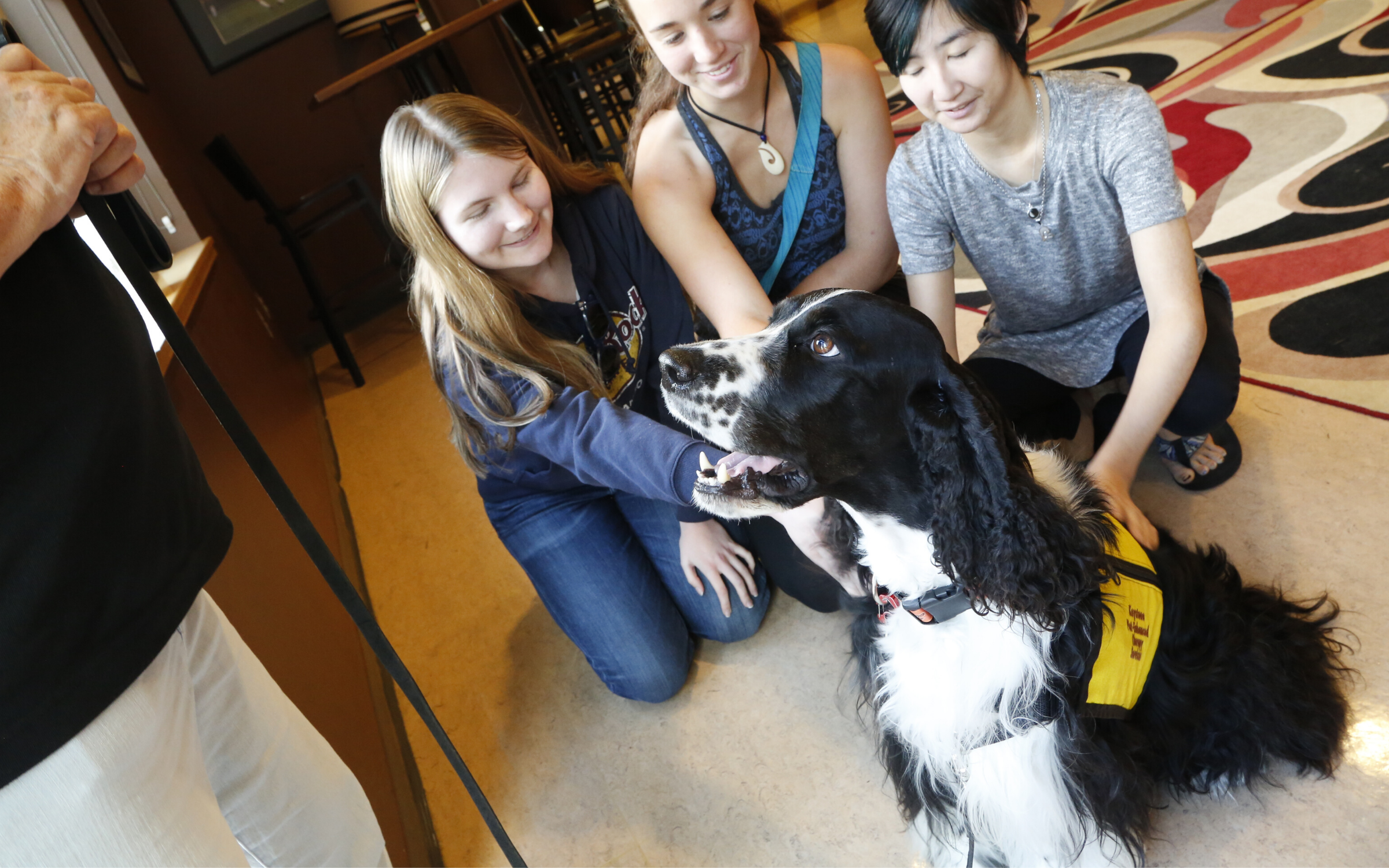

Experiencing Grief
Dealing with grief is difficult, but it doesn't have to be isolating. Here are some tips for seeking help and helping yourself through a loss.
Experiencing Grief
No two people are likely to experience grief in the same way. The way we think and feel, the way our body functions, and the way we interact with others may all be affected. Some of the more common experiences include:
- Difficulty concentrating
- Apathy
- Anger — at those responsible, at the deceased, at ourselves, at God, at any handy target
- Guilt — “If only I had done …”
- Sleep disturbances
- Loss of appetite
- Withdrawal from others
- Irritability
- Intense sadness or tears when a memory is triggered
- Numbness
- Loneliness, or a sense of separateness from others
- Loss of life’s meaning
Sometimes our reactions are so changeable, intense, or irrational that we fear we may be going crazy. Often grieving people are afraid to confront their grief for fear that if they open the door they will be drowned in a flood of tears or rage. Though this is very unlikely, allowing others to help us in our grieving is good ‘insurance’ that we will keep our balance.
No matter what our intense experiences of grief may be they are temporary. There IS life after grief — if we acknowledge and work through our reactions, rather than trying to stop them.
How Do You Do Grief Work?
Fortunately, much of the process of healthy grieving seems to be ‘built into’ our genes. Acknowledging and growing from losses is such a natural process that much of it will happen without our direction — if we relax our expectations of how we “should” grieve and give up some of our need to be in control.
Healthy grieving is an active process. It is NOT true that, “You just need to give it time.” One way of understanding the work to be done is to think of grieving as a series of tasks we need to complete (not necessarily in sequence):
- To accept the finality of the loss;
- To acknowledge and express the full range of feelings we experience as a result of the loss;
- To adjust to a life in which the lost person, object, or experience is absent;
- To ‘say good-bye,’ to ritualize our movement to a new peace with the loss.
Good friends, family members, or a personal counselor can all be helpful in doing this vital work. You can also do a good deal to help yourself.
Helping Yourself Through Grief
Active, healthy grieving requires balance — balancing the time you spend directly working on your grief with the time you spend coping with your day-to-day life; balancing the amount of time you spend with others with the time you spend alone; balancing your need for help from others with caring for yourself. Focusing too strongly on any single side of these pairings is getting off-track.
Here are some things others have found useful in their healthy grieving. Choose the ones that fit for you, or make up your own methods of self-care. Remember that grieving is an active process, it takes energy that will likely have to be temporarily withdrawn from the usual pursuits of your life. Treat yourself with the same care, tolerance, and affection you would extend to a valued friend in a similar situation.
- Go gently — take whatever time it needs, rather than giving yourself a deadline for when you should be “over it”
- Expect and accept some reduction in your usual efficiency and consistency
- Try to avoid taking on new responsibilities or making major life decisions for a time
- Talk regularly about your grief and your memories with someone you trust
- Accept help and support when offered
- Be particularly attentive to maintaining healthy eating and sleeping patterns
- Exercise moderately and regularly
- Keep a journal
- Read — there are many helpful books on grief. If grief is understood it is easier to handle
- Plan, and allow yourself to enjoy without guilt, some GOOD TIMES. The goal is balance, not martyrdom
- Carry or wear a linking object — a keepsake that symbolically reminds you of your loss. Anticipate the time in the future when you no longer need to carry this reminder and gently let it go
- Tell those around you what helps you and what doesn't. Most people would like to help if they knew how
- Take warm, leisurely baths
- See a grief counselor
- Get a massage regularly
- Set aside a specific private time daily to remember and experience whatever feelings arise with the memories
- Choose your entertainment carefully — some movies, TV shows, or books can only over-intensify already strong feelings
- Join a support group — there are hundreds of such groups and people have a wonderful capacity to help each other
- Plan for ‘special days’ such as holidays or anniversaries. Feelings can be particularly intense at these times
- Pray
- Take a yoga class
- Connect on the Internet. There are many resources for people in grief, as well as opportunities to chat with fellow grievers
- Vent your anger in healthy ways, rather than holding it in. A brisk walk or a game of tennis can help
- Speak to a member of the clergy
- Plant yourself in nature
- Do something to help someone else
- Write down your lessons. Healthy grieving will have much to teach you.
Looking for Help?
If you are struggling with grief and need support, reach out to Health Services at 410-778-7261 to schedule an appointment.